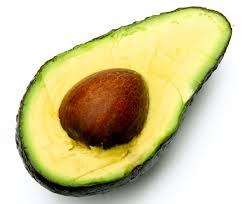The nutritional status of women when becoming pregnant and during pregnancy can have significant influence on infant and maternal health problems. Numerous studies of nutritional education and counseling before and during pregnancy have demonstrated beneficial effects in terms of improved gestational weight, increased head circumference, reduced risk of preterm birth, and reduced risk at birth of maternal anemia.
A pregnant woman needs to ensure that her diet provides enough nutrients and energy for her baby to grow and develop properly and also to make sure her body is capable of sustaining the multiple demands that come with pregnancy. Caloric intake grows with pregnancy and weight gain varies considerably. For the average healthy woman, ideal weight gain is 25-35 lbs during the nine month pregnancy.
Either excessive or insufficient weight gain can be deleterious to the health of both the baby and the mother. In general, mother’s diet needs to be balanced and nutritious, involving right proportions of protein, carbohydrate, and fat while consuming a wide variety of fruits and vegetables.
Specifically, fat should provide no more than 30% of daily calories with monosaturated fats being preferable. Examples are foods such as olive oil, peanut oil, sesame oil, canola oil, avocado, and many nuts and seeds. Excellent sources of carbohydrates are potatoes, rice, pasta, and bread.
Animal-sourced protein includes lean meat and fish, as well as eggs. Beans, lentils, and legumes are good sources of protein as well as being rich in iron. Quinoa is notable as a source of all the essential amino acids. As far as fruits and vegetables, fresh and frozen produce usually have higher vitamin and nutrient content as well as being excellent sources of fiber.
Micronutrient deficiencies can be addressed through diet as well as supplements. The value of prenatal vitamins cannot be overemphasized. Folic acid, iron, vitamin D, calcium, iodine, and zinc are especially important during pregnancy. Adequate folic acid before and during pregnancy is critical in preventing neural tube defects which affect the brain and spinal cord. Recommended daily intake is 400-600 mcg.
During pregnancy, maternal blood volume increases significantly and adequate iron supplementation is required to prevent anemia and promote adequate oxygen carrying capacity. Vitamin D deficiency is common even in the non-pregnant state. Adequate Vitamin D during pregnancy is critical for normal fetal skeletal development and may be beneficial in mother to prevent preeclampsia.
Recommended dose is controversial and ranges from 600-4000 IU/day. Iodine is important for normal fetal thyroid development and function.
Clearly, pregnancy places impressive metabolic demands on the mother’s body. Only through nutritional education and counseling can the best outcomes for both mother and baby be achieved.



No comments:
Post a Comment